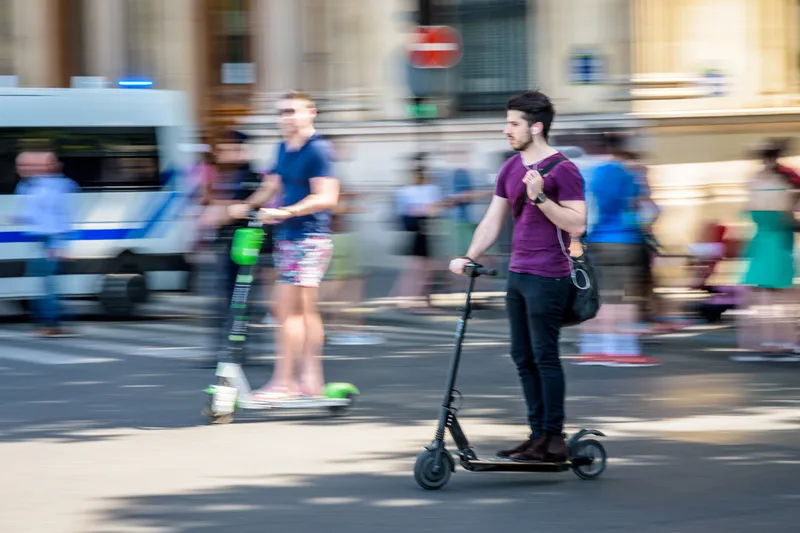
Parisians have voted to ban free-floating rental electric scooters, introduced in 2018, in France's capital.
Around 103,000 people took part in the referendum yesterday - less than 8% of those eligible to vote - with an overwhelming 90% voting in favour of the ban.
City mayor Anne Hidalgo thanked voters, saying: "It's a great victory for local democracy."
She added: "Parisians have spoken out massively against self-service scooters" and Hidalgo pledged to "put an end" to their deployment in the city by 1 September this year.
Lime, Dott and Tier currently operate around 15,000 trottinettes en libre-service in the City of Light and the companies were among five micromobility firms which released 10 recommendations last month for integrating scooters into cities.
Lime had also cited a report on micromobility in Paris before the vote which "shows how much the city may lose".
But the spotlight has fallen on some users' erratic driving of e-scooters, causing several deaths by hitting pedestrians and resulting in many more injuries in collisions.
In addition to safety concerns, there has also been negative feedback over the issue of street clutter, with scooters abandoned on sidewalks.
In a statement, Tier said it was "very disappointed" with the vote, which "goes against the global trend which sees countries and cities around the world embracing low carbon micromobility".
"Moving away from shared e-scooters also means that Paris is isolating itself from the rest of the world with major capitals like Washington, Madrid, Rome, London, Berlin or Vienna that are all implementing policies supporting e-scooters as ways to reduce unnecessary car usage," the statement continued.
Tier said it remains available "to work jointly with authorities towards achieving the adoption of a regulatory framework that fosters the uptake of micromobility".
Scott Shepard of Drover AI tweeted that the issue could have been resolved by "better coordination...smarter regulations... and technologies that improve riding & parking".








